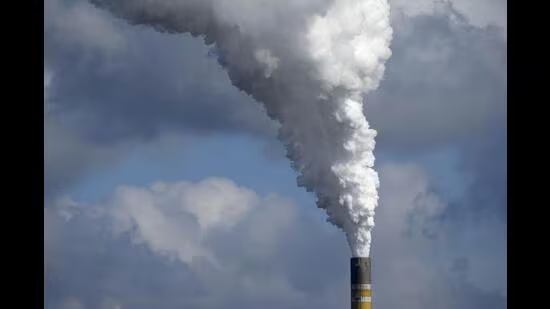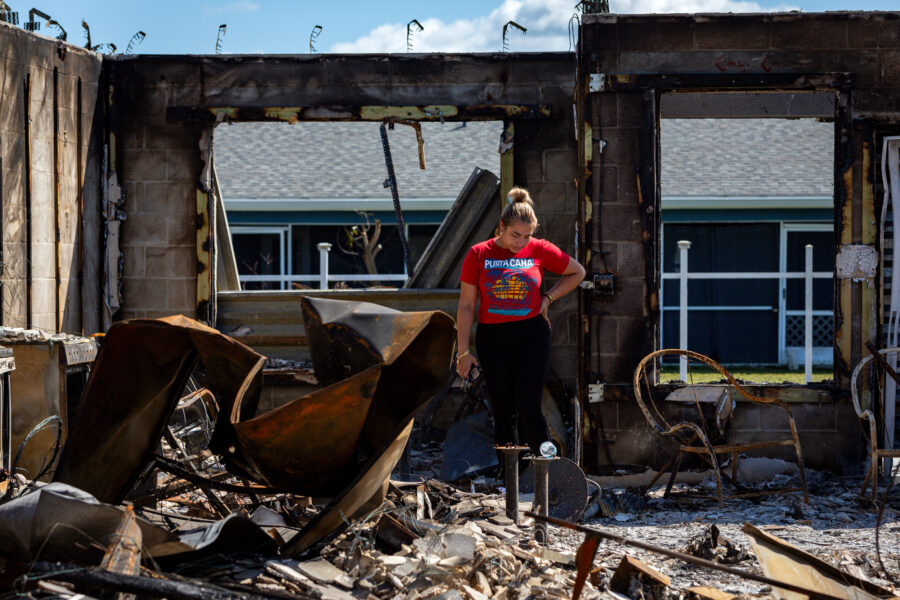Current pledges on climate change ‘will fail’ to meet 2°C goal
New Delhi: Current nationally determined contributions (NDCs) when aggregated, will almost certainly lead to a failure in achieving Paris Agreement goals, the United Nations Framework Convention on Climate Change (UNFCCC) has indicated on Monday, with the best-case estimate of peak temperature rise by the end of century in the range of 2.1–2.8°C based on full implementation of all NDCs until 2030, by when emissions are expected to have peaked.

To be sure, countries have till February next year to update these NDCs, essentially emission reduction targets.
Current NDCs combined would see global emissions in 2030 at a level only 2.6% lower than in 2019, falling far short of the 43% reduction by 2030 that is required to achieve the Paris Agreement goal of limiting warming to 1.5°C over pre-industrial levels and 27% reduction to limit warming to 2°C, according to a report presented by the Intergovernmental Panel on Climate Change.
The report synthesizes information from the 168 latest available NDCs, representing 195 Parties to the Paris Agreement, including the 153 new or updated NDCs communicated by 180 Parties as on September 9. These cover 95% of the total global emissions in 2019. A total of 34 parties have communicated new or updated NDCs since 25 September 2023.
Global emissions to peak before 2030?
Total global green house gas (GHG) emissions (without considering land use, land-use change, and forestry) taking into account implementation of the latest NDCs will take emissions in 2030 to a level 49.8% higher than in 1990, 8.3% higher than in 2010 , but 2.6% lower than in 2019, indicating the possibility of global emissions peaking before 2030.
The projected total global GHG emission level taking into account full implementation of all latest NDCs continues to imply a possibility of global emissions peaking before 2030, with the lower bound of the 2030 emission level estimated to be up to 8.6% below the 2019 emission level.
Most importantly though, the report has underlined that this would be possible only if conditional NDCs dependent on transfer of finance and technology are implemented.
“In order to achieve that peaking, the conditional elements of the NDCs need to be implemented, which depends mostly on access to enhanced financial resources, technology transfer and technical cooperation, and capacity-building support; availability of market based mechanisms; and absorptive capacity of forests and other ecosystems,” the report added.
Beyond 2°C warming
The best estimate of peak temperature rise by end of century is in the range of 2.1–2.8°C, the report has highlighted.
“Taking into account the implementation of NDCs up until 2030, projected global mean temperatures are subject to significant uncertainty owing to the range of emission levels estimated for 2030 resulting from implementation of NDCs (including whether conditional elements are implemented or not), the range of illustrative emission extensions beyond 2030 and inherent climate system uncertainties. The best estimate of peak temperature in the twenty-first century is in the range of 2.1–2.8°C depending on the underlying assumptions, the report has said.
“Today’s NDC Synthesis Report must be a turning point, ending the era of inadequacy and sparking a new age of acceleration, with much bolder new national climate plans from every country due next year. The report’s findings are stark but not surprising – current national climate plans fall miles short of what’s needed to stop global heating from crippling every economy, and wrecking billions of lives and livelihoods across every country,” said UNFCCC Executive Secretary, Simon Stiell, in a statement.
The coming climate conference in Baku, COP29 is a vital moment in the world’s climate fight, and today’s data is a blunt reminder of why COP29 must stand and deliver. Governments must come to Baku ready to convert the pledges in the UAE Consensus at COP28 – tripling renewables, the global goal on adaptation, transitioning away from all fossil fuels – into real-world, real-economy results, protecting people and their livelihoods everywhere, he added.
“The NDC Synthesis Report reveals that the world is still dangerously off track in achieving climate targets. Fossil fuels remain dominant, and efforts to scale up renewables fall far short of what the science demands. The financial lifeline that developing countries desperately need to protect people from climate disasters and raise ambition on emissions reduction remains absent,” said Harjeet Singh, Climate Activist and Global Engagement Director for the Fossil Fuel Non-Proliferation Treaty Initiative.
“The fate of our planet now hangs on COP29 and the progress on a new climate finance goal. Rich nations have continuously failed to deliver the promised funds, and if they don’t commit to the trillions of dollars needed annually for climate action, the world is headed toward a future defined by catastrophic floods, fires, and food crises,” he added.
The Centre for Science and Environment also flagged on Monday that COP29 in Baku will be one of the most critical climate conferences because finance is the central agenda. There can be no immediate climate action without availability of climate finance for developing countries, CSE said.
Only 1% of the global GDP – about $1 trillion – can meet developing countries’ immediate climate requirements. CSE paper says this must be provided through non-debt creating financial instruments like grants and concessional loans. Other issues on the table: Article 6 (carbon markets), scaling up of mitigation ambitions and the global goal on adaptation.
COP 29 will work towards reaching an agreement on what is called the ‘New Collective Quantified Goal’ (NCQG) on climate finance. The NCQG will replace commitments made by developed countries in 2009 to support climate action in developing countries, by providing $100 billion per year by 2020.
“COP 29 has the potential to become the most important climate conference since Paris – given how crucial financial support is for developing countries to reach their climate goals. We have seen till now that the provision of climate finance by the Global North has been inadequate, and the Global South has been repeatedly let down by unmet pledges and commitments. We are hoping to see some change in this status quo at Baku,” said Sunita Narain, director general, CSE.
Disclaimer: The copyright of this article belongs to the original author. Reposting this article is solely for the purpose of information dissemination and does not constitute any investment advice. If there is any infringement, please contact us immediately. We will make corrections or deletions as necessary. Thank you.
Title:Current pledges on climate change ‘will fail’ to meet 2°C goal
Url:https://www.investsfocus.com









